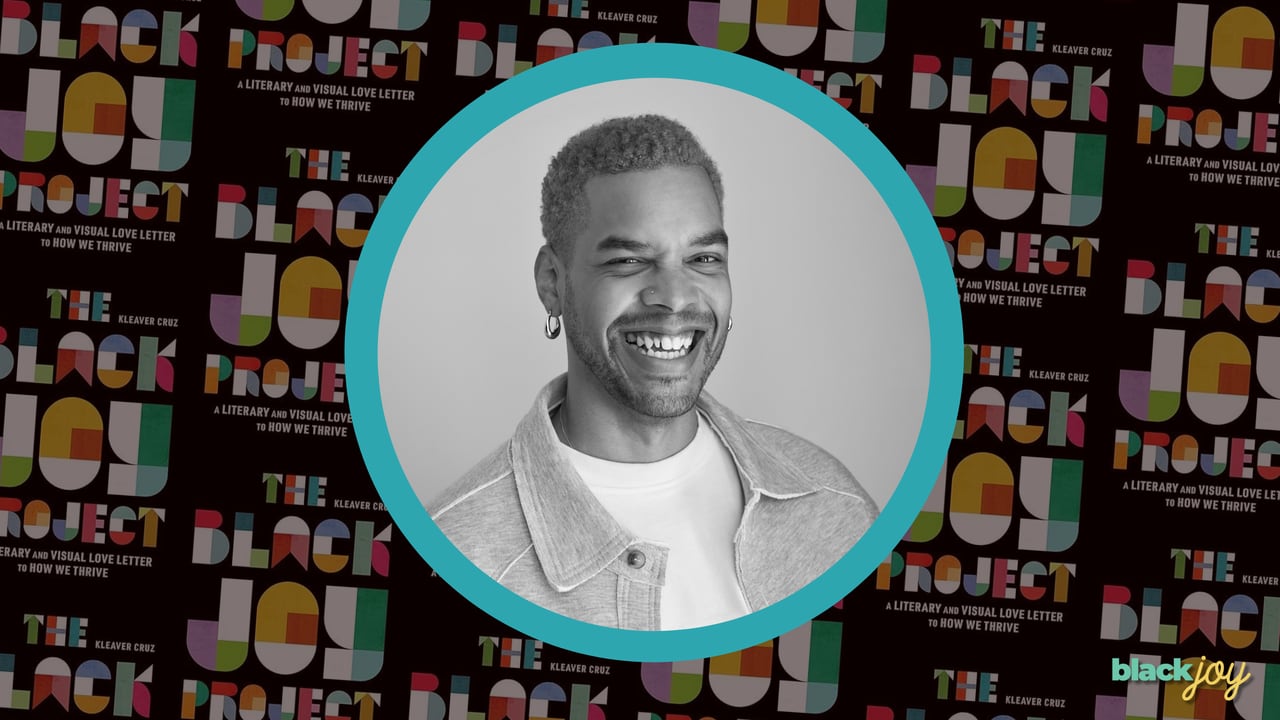The Black Joy Project with Kleaver Cruz
What does it mean to bear witness to unspeakable violence and still find space for joy? Kleaver Cruz meditates on this question in “The Black Joy Project,” which began in many ways as a call to action not just for himself, but for the collective. Back in 2015, in the quiet darkness of depression, is where Cruz answered a calling to bring this project to life. He describes it as akin to spiritual awakening: “…the words Black and joy seemed to float in front of me, so clear and so close I could nearly touch them.”
The experience prompted Cruz to share a photo on his social media accounts that he’d taken of his mother weeks earlier with a caption he ended with “#blackjoy.” This moment of trying to conjure joy during a difficult time grew into something much bigger than Cruz could imagine.
“The Black Joy Project” celebrates Blackness through a global lens, serving also as a visual archive of images that embody, in the words of Cruz, the “restorative, regenerative and generous” power of Black joy. This book reminds us that joy has always been our anchor. From artists and writers to journalists and social media influencers, Black joy is an affirmation and web of inspiration connecting Black people from every corner of the world.
In our conversation, Cruz discusses his earliest memory of joy, why Black joy is resistance, and his hope for future generations.
What is your earliest memory of Black joy?
I love that question because the other day I was rummaging through my mom’s old stuff and I found this picture [of me] and my twin brother. We were like 4 years old there, maybe. 90s babies, but seeing that picture was reminding me how much me and my brother really had joy as little kids. I think being twins made it fun cause we always had each other.
And yeah, I would say my childhood was a lot of joy. You know my background was, we had Section 8 housing and all these things, but it didn’t feel that way. When I think back to being that young, it was really fun, even though things were probably very hectic for the adults around me. Me and my brother, that makes me feel so joyful seeing that picture.
Can you talk more about the idea of Black joy as resistance? What does or can that look like in our everyday lives?
What comes to mind is ultimately, and after having spoken to a bunch of people, it boils down to freedom. It can look like us just being left alone in the sense of we get to decide whatever our existence is and choosing whatever is our most authentic self, that is a practice of that vision of freedom. And when I say the resistance, that part to me is like the imaginative, the even bigger version of that of like cause what we’re talking about in one sense, is surviving and I feel like joy allows us to also push past that [and imagine] what if we just didn’t exist in a world where we’re not worrying about rent on the 1st of the month, which is farfetched for now, but that is where my mind goes of what is really possible inside of that. And that joy can be the baseline without it being an escape or a distraction.
Take me back to your founding of the Black Joy Project. What was the most challenging aspect of keeping up the momentum of what you were creating?
I would say the reality of the world of “Is there room for joy? Why would people care about that? Am I being frivolous because I keep finding myself talking about joy?” And it’s like, well, people are really going through it [but] then something would happen to push it forward, whether it was somebody sending me an email or text message or someone being like “let’s [collaborate].”
I think a lot about the children who are witnessing our world currently. They are having, I think, a much different experience than past generations as they have access to so much information in real time. In imagining the future, how do you think Black joy will transform with the next generation? In what ways might they expand ongoing definitions of Black joy?
Gen Z really gives this energy of unapologetic-ness and also calling truth to power. I think that speaks to what I felt like I learned or observed around if joy ultimately means us being left to our own devices to be ourselves uninterrupted, unapologetically, I think that [the next generation] is able to practice that more, which has been a continuum through time of each generation. That’s what I really want for those young people is that they feel even less prohibited than we have.
For future readers of this book, tell me how you might define the Black Joy Project.
The first thing that came to mind was rooms full of mirrors. The intention is to reflect back what is already there. The beauty of Black joy is that we don’t gotta explain that to nobody. It’s like one of the things you don’t have to break down. The Black Joy Project is reflecting that it’s always been with us.
